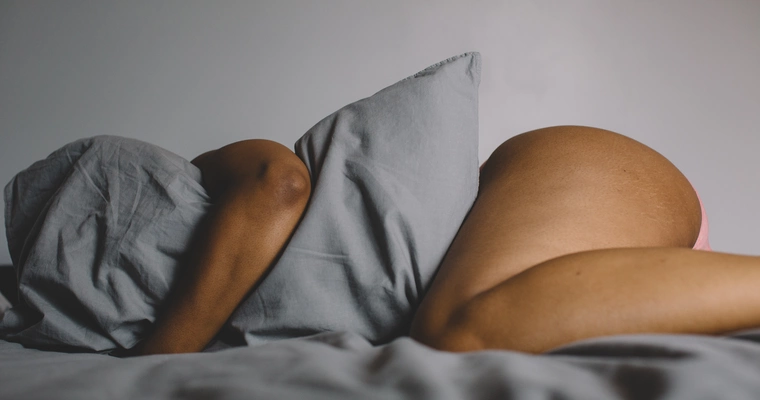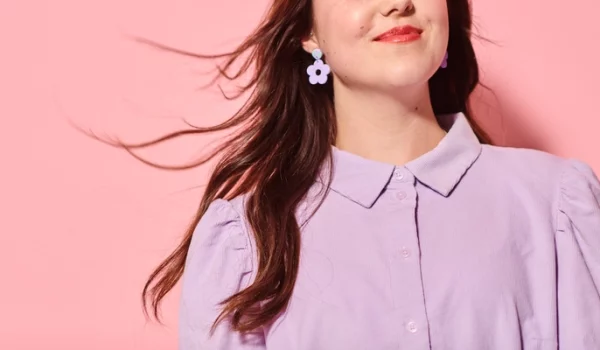-
By: health
-
September 10, 2019
I have a chronic illness and birth control changed my life
My experiences with birth control have been anything but simple and straightforward. Actually, the same can be said for my experiences as a person who has a period. I have a chronic reproductive illness called endometriosis . It took years of bad experiences with my period and birth control to even find out I have endometriosis, much less get help for it, but the Mirena IUD finally gave me the relief that I needed from this horrific illness. While birth control didn’t literally save my life, it certainly saved my quality of life.
When I was 14, my periods started getting bad. The week before my period, I got cramps so intense it felt like my uterus was trying to claw its way out through my pelvis. Sometimes the pain was so bad I threw up. When my period came it was like that scene from the movie Carrie . Bleeding through a super tampon within hours was a daily occurrence. And sometimes my periods lasted for 10 days or more.
My mother knew that these weren’t normal periods, so she brought me to multiple doctors. Every one of them downplayed my symptoms. Every one of them wrote a prescription for a different kind of birth control, insisting that this time, this birth control would be the answer. None of them gave me relief from my terrible periods, and many of them came with side effects that were almost as bad as my periods. But nobody was offering me a better solution than trial and error, so I kept trying whatever was prescribed to me.
It took me years to understand that these doctors weren’t taking care of me the way they should’ve been. Not one of them tried to find the cause of my awful periods. In fact, many of them implied I was exaggerating my symptoms. One even told me that periods were tough and I would have to learn to deal. It took me years to understand that I could advocate for myself and get better care. Unfortunately, it took me getting extremely sick for doctors to take me seriously.
In my mid-twenties I started experiencing gastrointestinal problems. I was nauseated all the time. I had diarrhea pretty much every day. Everything I ate made me sick to my stomach. I went to a gastroenterologist who told me I had IBS. I went to a naturopath who told me I should meditate before I ate because stress was messing with my digestion. I went to another naturopath who told me I had food allergies and put me on extremely restrictive diets that didn’t help. Not a single one of them asked me about my periods, and I didn’t think to mention it because what could that possibly have to do with my gut?
After two years of testing that provided no answers, I decided to do my own research. On a whim, I typed “GI problems and bad periods” into Google. The first result was a site about endometriosis. I started reading everything I could find, and I found that all of my symptoms lined up with the symptoms of endometriosis. I also learned that other experiences I was having that I hadn’t identified as symptoms—like unexplained pelvic pain throughout the month, pain during sex, and vaginal spasms—were also associated with endometriosis.
For the first time since I started getting sick, I felt like there were people out there who understood. For years I had wondered if I was making up or exaggerating my symptoms, mostly because doctors never took me seriously. But reading about endometriosis convinced me that what I was experiencing was real. I wasn’t crazy, I was sick.
I brought the information I’d found to the doctor I’d been working with for the past two years and he referred me to a gynecologist that specialized in endometriosis. As soon as she heard me describe my symptoms, she agreed that they fit with endometriosis. She spent a long time talking to me about my treatment options. She made it clear that endometriosis is chronic and that it cannot be cured, but that many people experience relief from their symptoms by going on the right hormonal birth control.
I went through my long history of birth control experimentation and she listened attentively. When I was done, she told me that she would recommend a type of hormonal birth control that none of my previous doctors had suggested—the Mirena IUD.
I was nervous about having a device implanted in my uterus, especially since I experienced pain when anything was inserted in my vagina. But she gave me a ton of information about why she thought the Mirena IUD would be the best choice for managing my symptoms and suggested we give it a try.
I won’t lie, the IUD insertion hurt a lot, and I experienced about a week’s worth of awful cramps. But after that week was over, I felt fine.
When I got my period for the first time after getting the IUD inserted, it was the first normal period I’d ever had. The cramps were barely noticeable. I wasn’t nauseated at all. I got through the shortest period of my life with normal tampons, not supers. My GI symptoms started to improve, and I didn’t have pain throughout the month. I wasn’t suffering at the hands of my reproductive system anymore. And there was the added benefit of not having to worry at all about my birth control method. I knew I wasn’t ready for kids, and the IUD made it so I never had to think about how I was going to prevent pregnancy.
The Mirena IUD made my life livable.
Unfortunately, the story of me and my endometriosis doesn’t end there. My disease progressed, and I got so sick that I wasn’t functional. My doctors suggested that I get surgery to remove the endometriosis, which I did.
Since then I have been healthier than ever before. I’m now pregnant with my first child. And while I’m in the delivery room, I plan to have the Mirena IUD inserted again because I’ve never been happier with a birth control method in my life. Though I’ve experienced relief from my endometriosis since the surgery, I know that being on the Mirena IUD will help my body deal with the residual effects of this chronic illness, which never completely goes away. And now that I know I can have a normal period with the Mirena IUD, I’ll never go back.









Leave a comment